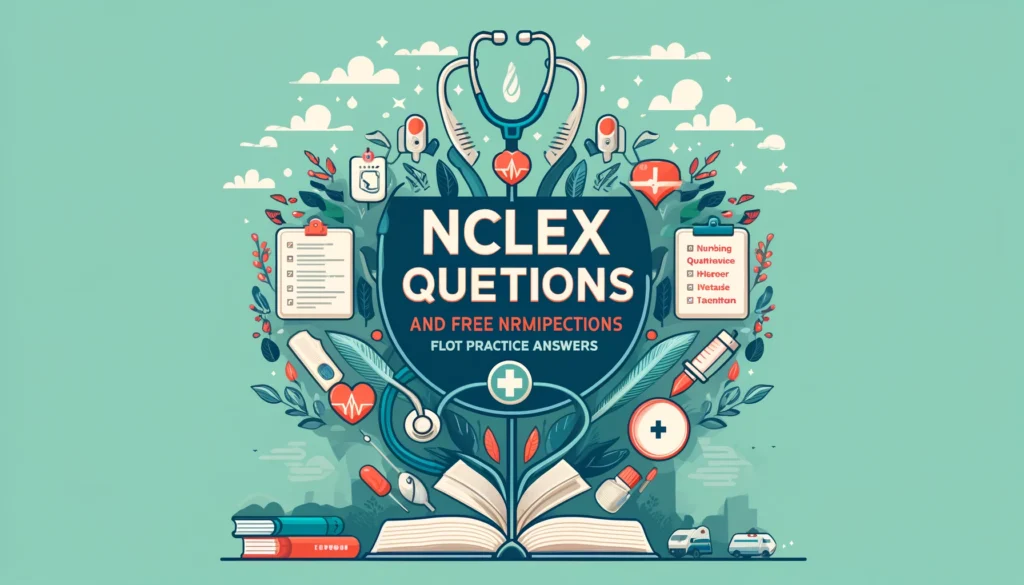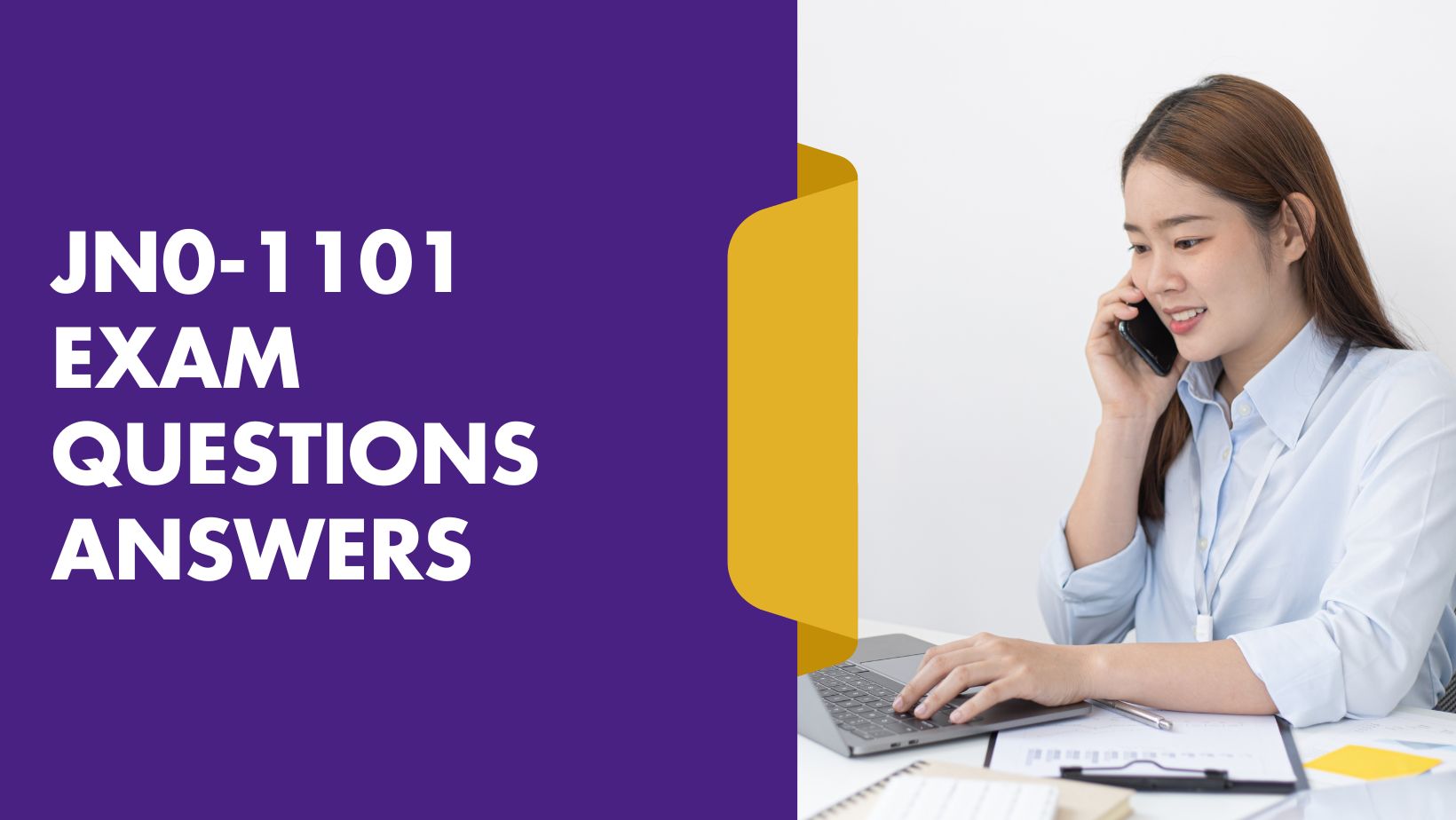Embarking on a career in nursing is a journey filled with challenges and learning opportunities, culminating in one of the most pivotal milestones: passing the NCLEX (National Council Licensure Examination). This exam not only tests your knowledge of nursing principles but also assesses your ability to make critical decisions in various healthcare scenarios.
To aid in your preparation, we’ve compiled a guide to NCLEX Exam Questions free practice questions and exam answers, designed to enhance your understanding and boost your confidence as you approach exam day.
Table of Contents
Introduction
The NCLEX-RN (National Council Licensure Examination for Registered Nurses) represents a pivotal step for nursing graduates to obtain licensure and embark on their professional nursing careers. This computer-adaptive test evaluates candidates’ competency to ensure they can safely and effectively provide nursing care. Preparing for the NCLEX-RN demands a strategic approach, encompassing understanding the exam structure, mastering content areas, and developing critical thinking skills. This guide aims to provide a roadmap to navigate through the complexities of the NCLEX-RN, highlighting key points and offering practical tips for aspiring nurses.
Key Points
- Exam Structure: The NCLEX-RN utilizes a unique computer-adaptive testing format that adjusts the difficulty of questions based on the test-taker’s ability. Understanding this format can help you approach the exam with confidence.
- Content Areas: The exam covers a broad spectrum of topics, including Safe and Effective Care Environment, Health Promotion and Maintenance, Psychosocial Integrity, and Physiological Integrity. A deep dive into these domains is essential for comprehensive preparation.
- Critical Thinking and Application: Beyond memorizing facts, the NCLEX-RN tests your ability to apply knowledge in real-world scenarios. Developing critical thinking skills is paramount to interpret questions correctly and choose the best answers.
- Test-taking Strategies: Familiarizing yourself with common types of NCLEX questions, such as prioritization, delegation, and select-all-that-apply (SATA), can enhance your test-taking efficacy.
The Importance of Practice Questions
Practice questions are a cornerstone of effective NCLEX Exam Questions preparation. They help you familiarize yourself with the exam’s format, identify areas of strength and weakness, and apply theoretical knowledge to practical situations. Engaging with a wide array of questions can also alleviate test anxiety, making you more comfortable with the pressure and time constraints of the actual exam.
Where to Find Free Practice Questions
- NCSBN Learning Extension: The National Council of State Boards of Nursing (NCSBN) offers a range of practice questions and resources to help candidates prepare for the NCLEX. Their website is a great starting point for accessing high-quality, authoritative practice questions.
- Nursing School Websites and Online Portals: Many nursing schools and educational websites provide free NCLEX Exam Questions practice questions. These resources often include detailed rationales for each answer, helping you understand not just the ‘what’ but the ‘why’ behind each question.
- Social Media Study Groups: Platforms like Facebook and Reddit host NCLEX study groups where members share practice questions, study tips, and moral support. Participating in these communities can offer additional insights and expose you to more diverse practice questions.
- Nursing Blogs and Forums: Numerous nursing blogs and forums regularly post NCLEX practice questions and tips. These platforms can also provide valuable advice on exam strategies and stress management techniques.
Sample NCLEX Exam Questions
To give you a head start, here are a few sample NCLEX Exam Questions practice questions:
- A nurse is caring for a patient with chronic obstructive pulmonary disease (COPD). What is the priority nursing intervention?
- A) Administering bronchodilators
- B) Providing supplemental oxygen
- C) Placing the patient in a high Fowler’s position
- D) Encouraging fluid intake to thin secretions
Answers: 1) C
- A nurse is preparing to administer medication to a patient with heart failure. Which assessment is most critical before administration?
- A) Apical pulse
- B) Blood pressure
- C) Respiratory rate
- D) Temperature
Answers: 2) A
Tips for Using Practice Questions Effectively
- Simulate Exam Conditions: Try to mimic the exam environment by timing yourself and minimizing distractions.
- Review Rationales: Understanding why an answer is correct or incorrect is crucial for learning.
- Create a Study Schedule: Regular, focused practice sessions are more effective than cramming.
- Focus on Weak Areas: Use practice questions to identify and improve on weaker subjects.
Preparing for the NCLEX requires a well-rounded understanding of various nursing topics, including metabolism. Here are some practice questions focused on metabolic processes, conditions, and interventions that are relevant to the NCLEX Exam Questions. Remember, these questions are designed for study purposes and to enhance your critical thinking skills.
| Topic | Question | Options | Correct Answer |
|---|---|---|---|
| Pharmacology | A nurse is preparing to administer digoxin to an elderly patient with heart failure. Before administration, which of the following actions is most important? | A) Assess the patient’s urine output. B) Evaluate the patient’s electrolyte levels. C) Check the patient’s apical pulse. D) Measure the patient’s blood pressure. | C) Check the patient’s apical pulse. |
| Mental Health | A nurse is caring for a patient experiencing severe anxiety. Which of the following interventions should the nurse prioritize? | A) Encourage the patient to perform deep breathing exercises. B) Immediately administer prescribed anxiolytic medication. C) Engage the patient in a detailed discussion about their fears. D) Leave the patient alone to reduce stimulation. | A) Encourage the patient to perform deep breathing exercises. |
| Maternity Nursing | A nurse is providing care for a postpartum patient. Which of the following findings would necessitate immediate intervention? | A) Pain rated 2 on a scale of 0 to 10 during breastfeeding. B) Lochia rubra with small clots. C) A temperature of 38.3°C (100.9°F). D) Uterine fundus palpated at the level of the umbilicus. | C) A temperature of 38.3°C (100.9°F). |
| Pediatric Nursing | A nurse is assessing a 2-month-old infant during a well-child visit. Which of the following findings should the nurse report immediately? | A) The infant coos when happy. B) Absence of a Moro reflex. C) The infant does not follow objects across the midline. D) A soft, flat anterior fontanel. | B) Absence of a Moro reflex. |
| Medical-Surgical Nursing | A nurse is caring for a patient who just underwent surgery for colorectal cancer. The nurse notices bright red blood in the surgical drain. Which of the following actions should the nurse take first? | A) Document the finding in the patient’s medical record.<br>B) Notify the surgical team immediately. C) Measure the amount of blood in the drain. D) Check the patient’s vital signs. | D) Check the patient’s vital signs. |
| Infection Control | A nurse is preparing to enter the room of a patient under airborne precautions. Which of the following personal protective equipment should the nurse wear? | A) Gloves and a gown B) A surgical mask C) An N95 respirator mask D) A face shield | C) An N95 respirator mask |
Guide to Success
- Understand the Blueprint: Start with reviewing the official NCLEX-RN Test Plan, which outlines the exam structure and content. This blueprint is your guide to what subjects you need to focus on.
- Comprehensive Study Plan: Create a study plan that covers all the exam content areas, allocating more time to topics you find challenging. Incorporate a mix of study methods, including textbooks, online courses, and simulation exams.
- Practice, Practice, Practice: Leverage practice questions and simulation exams to familiarize yourself with the exam format and question styles. Pay attention to rationales for both correct and incorrect answers to deepen your understanding.
- Master Test-taking Strategies: Develop strategies for different question types. For example, for prioritization questions, remember the ABCs (Airway, Breathing, Circulation) and Maslow’s hierarchy of needs.
- Self-Care and Stress Management: Don’t underestimate the importance of mental and physical well-being. Ensure adequate rest, nutrition, and relaxation to keep stress levels manageable.
- Seek Support: Join study groups, forums, or engage with a mentor for additional support and motivation. Sharing insights and tips with peers can offer new perspectives and boost confidence.
NCLEX Practice Questions: Metabolism
- A nurse is caring for a patient with type 1 diabetes mellitus. Which of the following symptoms should the nurse expect if the patient experiences hypoglycemia?
- A) Polyuria
- B) Kussmaul respirations
- C) Diaphoresis
- D) Dry skin
- A patient is diagnosed with hyperthyroidism. The nurse understands that which of the following symptoms are associated with this condition? (Select all that apply.)
- A) Weight gain
- B) Heat intolerance
- C) Bradycardia
- D) Insomnia
- E) Exophthalmos
- A nurse is providing dietary teaching for a patient with gout. Which of the following foods should the nurse recommend avoiding?
- A) Tomatoes
- B) Low-fat dairy products
- C) Shellfish
- D) Rice
- A patient with Addison’s disease is admitted to the hospital. Which of the following should the nurse prioritize in the care plan?
- A) Monitor for hyperglycemia
- B) Administer corticosteroids as prescribed
- C) Restrict fluid intake
- D) Provide a high-sodium diet
- A nurse is educating a patient with hypothyroidism about dietary management. Which of the following nutrients is most important to include in the diet?
- A) Vitamin D
- B) Calcium
- C) Iodine
- D) Magnesium
Answers and Rationales
- C) Diaphoresis. Hypoglycemia in patients with diabetes can cause symptoms such as sweating (diaphoresis), trembling, hunger, and confusion. Polyuria and dry skin are more commonly associated with hyperglycemia.
- B) Heat intolerance, D) Insomnia, E) Exophthalmos. Hyperthyroidism can lead to symptoms like heat intolerance, insomnia, and exophthalmos due to increased metabolism and sympathetic nervous system activity. Weight gain and bradycardia are more indicative of hypothyroidism.
- C) Shellfish. Patients with gout are advised to avoid foods high in purines, as purines can increase uric acid levels, leading to gout flare-ups. Shellfish, red meat, and alcoholic beverages are high in purines.
- B) Administer corticosteroids as prescribed. Addison’s disease results from insufficient cortisol production. Treatment typically includes hormone replacement with corticosteroids to manage symptoms and prevent crises.
- C) Iodine. Hypothyroidism can be related to iodine deficiency, as iodine is essential for thyroid hormone production. Including iodine-rich foods (such as iodized salt, dairy products, and seafood) or supplements can help manage hypothyroidism.
These questions aim to cover a range of metabolic conditions and considerations that are important for nursing practice and the NCLEX Exam Questions. Understanding these concepts and applying them in practice can help ensure effective patient care and success on the exam.
Conclusion
Passing the NCLEX-RN is a significant milestone in your nursing career, opening the doors to countless opportunities. While the exam may seem daunting, remember that it’s a journey of growth and learning. By understanding the exam structure, diligently preparing across all content areas, and developing effective test-taking strategies, you are setting the stage for success. Embrace the challenge with positivity, resilience, and confidence. Your dedication and hard work will pave the way to achieving your dreams of becoming a licensed registered nurse.
Leveraging free NCLEX practice questions is a strategic way to enhance your exam preparation. By integrating these resources into your study plan, you can deepen your understanding of nursing concepts, refine your test-taking strategies, and approach the NCLEX with confidence. Remember, consistent practice and a positive mindset are key to unlocking your nursing potential. Good luck!






